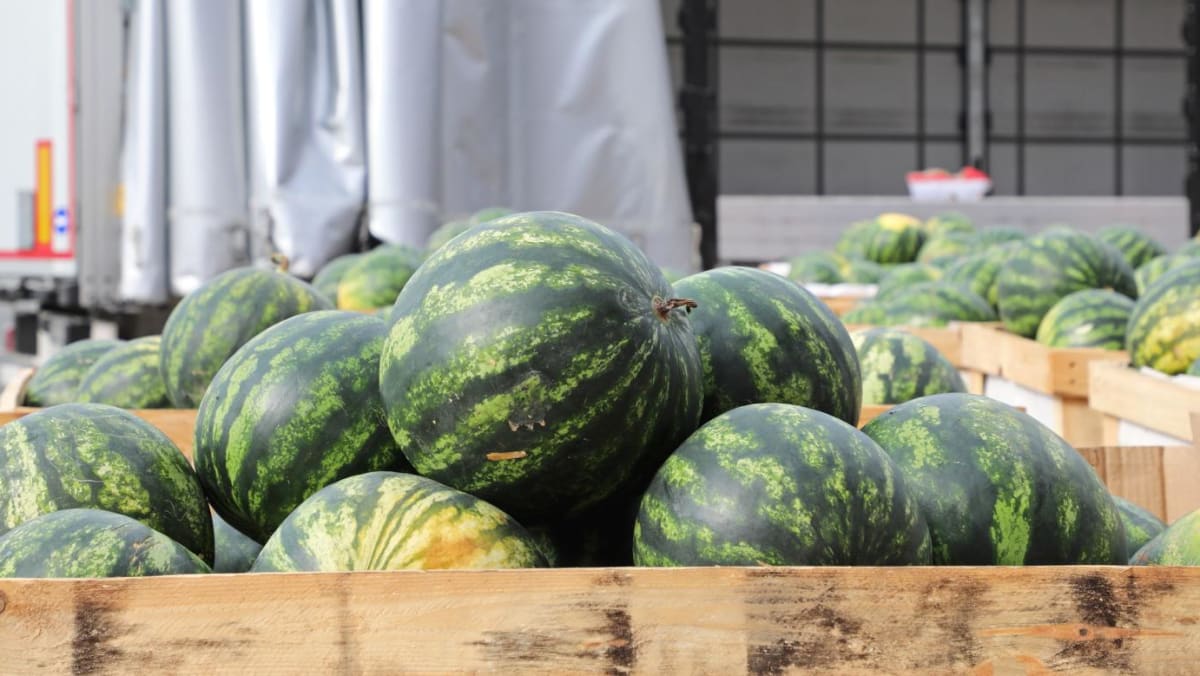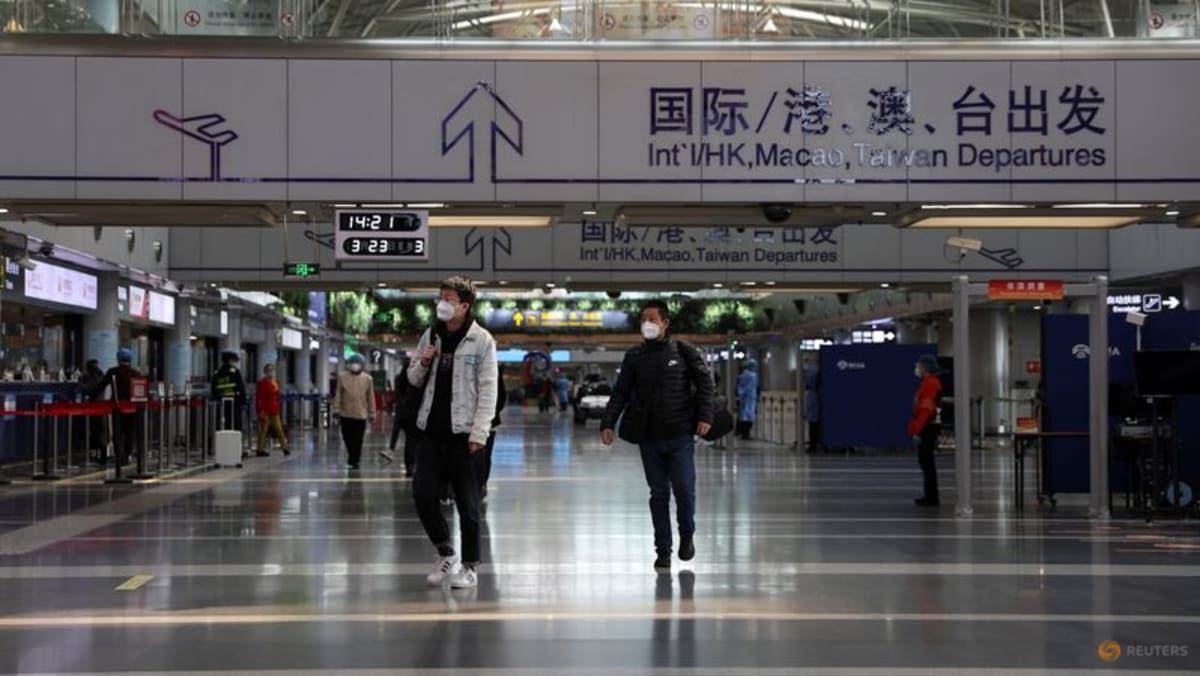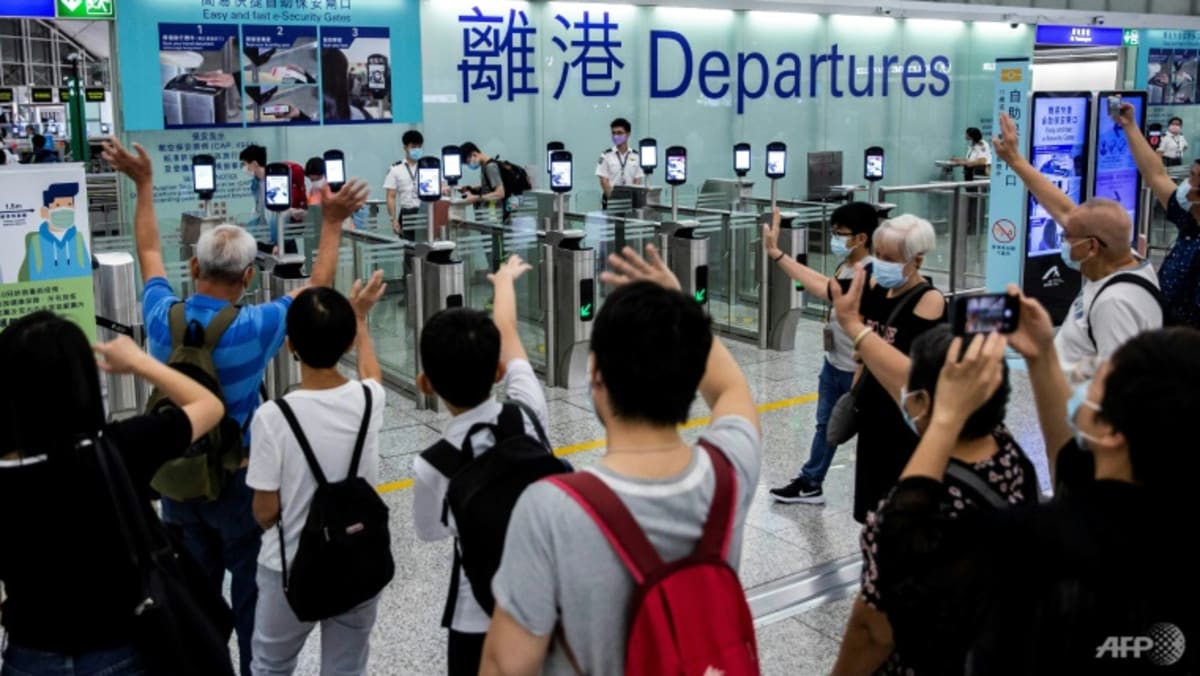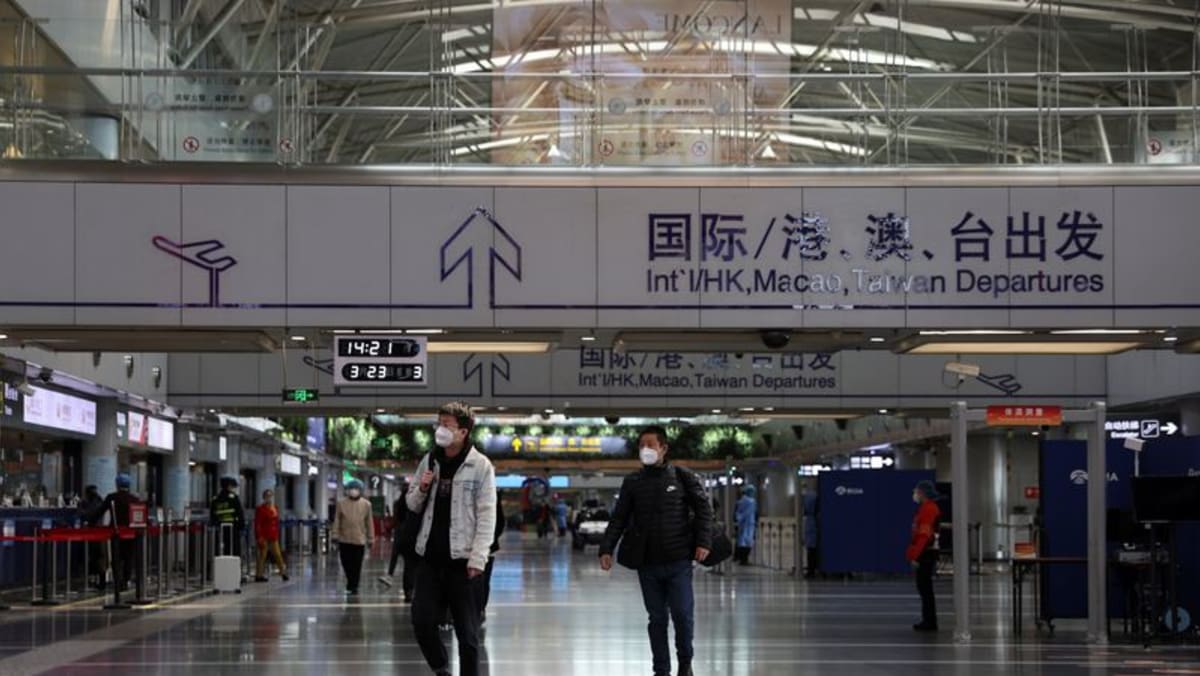By Deborah Castellano Lubov
On Aug. 27, 2022, Singapore will have its first Cardinal. Cardinal-elect William Goh says he never expected nor sought it, and reflects on the expectations placed on him as he serves the Catholics in one of Asia’s smallest and richest countries, often portrayed as an international business hub. Despite this, he tells Vatican News in a wide-ranging interview why the Church is flourishing there and how sometimes business and affluence can lead to even more of a quest for God.
How did you learn Pope Francis had named you a Cardinal?
I was preparing a homily and when the news came in, some people sent me some SMS messages congratulating me on being elevated to the rank of Cardinal. I thought maybe it was fake news, so I didn't pay much attention. I just continued working on my homily. I didn’t believe it was true at first until many more messages came in, referring to the announcement the Pope made at the end of the Angelus. The full awareness only set in later that evening and the next day.
Why do you believe the Holy Father has selected you to be Cardinal? And in what way do you look forward to counseling him as Cardinal?
Cardinals that come from different continents and countries will be able to share with the Holy Father the situation in the different countries, regarding the Catholic faith as well as that of the other religions and the political situations.
Can you tell us about the small Christian minority in Singapore?
Actually, I wouldn't say that we are a small Christian minority. We are quite a potent force, actually, because if you were to look at the country’s statistics, Singapore has a population of some 3.5 million citizens.
Christians make up almost 20 percent of the population. With Catholics being about 7 percent of the population, we make up 37 percent of the country’s total Christianity population. So actually, Christianity, between Catholics and Protestants, make up the second largest religious group in Singapore
So as far as the religious composition of Singapore’s population stands, Buddhism is about 31%, followed by Christianity almost 20%, then Islam around 15%, Taoism is almost 9%, and Hinduism with 5%.
As a Church, we are the biggest, because we have 240,000 adult Catholics is (those 15 years and older). If you include the children, we are 350,000 or 360,000. [In Singapore, statistics show there are some 240,000 Catholics aged 15 years and above. Other Christians number about 411K and the Catholics are 242K]
We are quite a major, you can say, presence in Singapore. But the other group that is equally big is or slightly bigger than us would be the growing number of those without religions. About 20% do not profess any religion. But that doesn't mean to say they're atheist. It's just that they don't subscribe to any particular religion. Doesn't mean that they don't believe in God. Some might not, but 20% they do not belong to any religion as such.
Christianity is quite a big community and that is why in Singapore we play a very important role in the country.
What is it like to be a practicing Catholic in Singapore?
In Singapore, the people are highly educated and most of them hold academic degrees and the people here have high expectations of priests, not just only in terms of their moral life, but in terms of their preaching and teaching. The Catholic population basically, comes from the middle class, upper lower middle class. Mostly all Catholics have an education.
Looking at the faith of our people, they want to know more. They want to listen to good homilies. They are searching. They want to grow in faith. Of course, the older generation tends to be a bit more devotional in their faith, just practicing, but they have strong faith. For the younger group, they are very much into wanting to discover more of their faith.
Our Catholics are actually very active, whether in the Church or in social political life. They have a great influence in society. And we are; you know, we are Asians. We are very polite. We don't make a lot of noise. We don't shout. We don't protest all those things [smiling]. But we in our own ways, in a quiet way, we witness to the faith.
What is that witness like?
All in all, I say we have a very active number of Catholics. Pre-Covid, all our churches every Sunday are packed to the brim. Every Sunday. But then, of course, if you think in terms of the entire Catholic population, which is about, including children, maybe about 360,000[the figure takes into account the total Catholic population in Singapore, including children and migrants, of which one-third are deemed to be active Catholics who attend Church services], we think about 140,000 or 150,000 might go to church on Sunday. If everybody goes to church, we would need to build more churches. The people are really I mean, I think on the whole--it's not just the Catholics alone - Asians are religious minded. We tend to see the importance of the sacred - God in our life.
Singapore is one of the richest Asian countries and one of the smallest in the world? My question had been, would you describe it as a religious country?
Yes. In fact, Singapore, we don't consider ourselves a secular country, [confirmed] every time when we have dialogue with the government. Actually, all religions are partners of the government. That is why we consider ourselves a multi-racial, multi-religious state with a secular government to ensure neutrality.
So, 80% of Singaporeans, including those in the government, they have a faith, have a religion, and they are very what we call - very fervent believers, whichever party they belong to. Even the government and those in government service, 80% have a faith in God or belong to some religion. We are multi-religious and the government sees us as partners because at the end of the day it is for the betterment of the people to help get the people to be united together and to help the country to grow. The government is very grateful to all the religions.
I think the great thing about our government is its neutrality. That is why it is a secular government. It’s very important to preserve the harmony among the many religions that we have in Singapore. And, we don't fight with each other.
In fact, we have a law. If you were to insult another religion, you go to jail. So, nobody insults the Catholics here because we have deep respect for each other and we come together very often among the religions. Most of the religious leaders, we, know each other in a very personal way. So, for any issues, any difficulties, we will talk with each other and are supportive of one another. That is why there is religious harmony in Singapore which you might not be able to see in some other countries, even in Asia.
I must say, even though you say Singapore is very affluent, this is true, but, you know, that affluence can drive people to extreme directions.
In what way are you suggesting affluence can impact religiosity?
Affluence can make a person lose faith in God and [be centered] on materialism. But affluence can also force or drive people into looking for meaning and purpose in life. So, for Singaporeans, we are quite affluent. That is true. Most people have more than what they need, but people are looking for meaning and purpose, especially the younger generation, those who are, let's say, 30 and below, because the parents, they are affluent, they are all well established. Money is not the real problem for those in their thirties because most families have only two children.
The young people today, they are not so interested in looking for jobs that will give them good pay or good remuneration. They are asking: does this job give me purpose and meaning? So that is why, in our Christian faith, I always try to help these people to see the meaning and purpose of life. What are you living for? Are you living for this Gospel? Is that where your heart is, where your treasure is? This is where I drive the people to make them reflect more consciously, and see that what actually makes us happy is not things, but that they have a certain what we call, level of satisfaction and sense of purpose.
Pope Francis has dedicated throughout his pontificate many signals of attention toward the peripheries of the world and the smallest and the newest Churches. And what about the Pope's teachings has struck you the most?
What I like most about the Holy Father's teaching is, is inclusivity that somehow everybody is important and also this strong emphasis on compassion. I think what the Church needs today is really compassion. And priests, especially priests and religious, I think we need to show more compassion for people who are weak, who are not able to live up to the teachings of the Church. We need to journey with them as what the Holy Father sees instead of being judgmental, because I believe that we are all struggling to be faithful to the Gospel. We are not perfect either. I think the Gospel is the ideal of course. We cannot compromise the values of the Gospel, but at the same time we need to be realistic. We need to be compassionate, to feel with those who are struggling to live up to their faith. I like the Holy Father’s emphasis on compassion and inclusivity. Everybody must somehow be embraced by the Church, whether those who are divorced, those who are LGBTQ, those who are on the peripheries, the poor. And I think this is what the Church is all about.
Why do you believe Pope Francis is giving the Church in Asia particular attention with his choices of Cardinal nominations during his consistories?
Well, I think the faith in Asia is very alive. It's almost the same as in Africa. Here the Church is considered quite new. We are! Our Archdiocese only celebrated its 200th anniversary last year as when Christianity came to Singapore. Again, I think we go back to the point that the Holy Father stressed on inclusivity [when considering] the question of the universal Church.
If the Church is ready to be universal, I think it must be more proportionately represented by the different continents and countries, so that the Church can be truly called the Catholic Church. In Asia, if you think in terms of conversion, there are plenty of opportunities to spread the faith because Asia is such a big continent and the faith is young. The faith is growing and the people are still young. The opportunities for evangelization are so great in Asia.
What do you see as being the greatest challenges for the Church in Asia? And what, on the other hand, can the Church in Asia teach the rest of the Church?
Let me share something with you. When I attend the Federation of Asian Bishops Conferences, the FABC, you realise that Asia is such a big continent. Through so many countries, it reflects the makeup of Asia. The countries are so diverse in terms of political stability, culture, religion, and standards of living. We have many and very diverse languages when we come together.
At the FABC, we just celebrated our 50th anniversary, which we have postponed to this year. Trying to get a consensus is a big challenge because we are very diverse. Even Singapore is so different from our next-door neighbor, Malaysia, in terms of their pastoral, religious and cultural challenges. I think that diversity is the greatest challenge for Asia.
We thank God in Singapore we have a government that promotes interreligious dialogue. But in other countries, unfortunately, a lot of, you can say, subtle or sometimes, even obvious, oppression of religions, especially of the Christian faith, the Catholic faith. Many of these governments they have state religions and so, a lot of sensitivity would be involved for dialogue in terms of getting the people to be united. If the government is not pro-interreligious harmony, [it] is a bit difficult.
In Singapore, we try to become as you can see, the model of what and how all religions can live together in peace, in harmony, but precisely because in Singapore, we don't have a state religion.
Religions are purely religions. We don't get involved in politics. Politicians are people. They are voted by the people. We leave the government to decide for the people. But the government is not against religion, so religion is a help. For us, then, we can promote harmony much easier.
But in larger Asia, religion is mixed, often mixed up with politics. Religion tries to use politics to gain power, politics tries to use religion to gain political policy. That becomes very confusing. And we don't know sometimes, when religion is really used to promote the faith or used as instruments to gain political power. It's a bit complex. On top of that, in Asia, the challenges of spreading the good news will be much more difficult because there are so many languages and you need to translate, for one country, into four or five languages. Although in Singapore, everybody speaks English. That has saved us a lot of trouble. My mother tongue is a Chinese dialect. But everybody in Singapore will know English, which makes conversing easier. Of course, we encourage retaining of culture. We still encourage others who come from other countries, like Myanmar, Vietnam, France or Italy, to keep their languages and culture. But then the other challenge, I think of Asia, is how to inculturate the faith. We must also be prudent with inculturation.
You spoke before about good news. When looking at a Church where in the West there is somewhat a dwindling of priestly vocations, but in some parts of Asia, there's really a boom, isn’t there?
In Asia again, there are differences. This is our challenge. In Singapore, we have vocations, not to say we do not have them, but in an affluent country, sometimes it is a bit more difficult to get people into priestly religious life. Although I think in terms of vocations, we have quite a lot if we bring in together the religious vocations, not just the diocesan priesthood. But you notice and this is again a great difficulty for the Asian Church in those countries that are, you can say, not so affluent, they have plenty of vocations, too many! We do not know whether they are true vocations or not, or just to escape from the poverty cycle.
So, discernment [is needed] because the seminaries are often full. There is difficulty trying to discern. But we must work to recognize what vocations are really genuine, even as we are trying to look for good vocations!
https://news.google.com/__i/rss/rd/articles/CBMiamh0dHBzOi8vd3d3LnZhdGljYW5uZXdzLnZhL2VuL3BvcGUvbmV3cy8yMDIyLTA3L2ludGVydmlldy1tZWV0LXRoZS1maXJzdC1mdXR1cmUtY2FyZGluYWwtb2Ytc2luZ2Fwb3JlLmh0bWzSAQA?oc=5
2022-07-05 04:58:13Z
CBMiamh0dHBzOi8vd3d3LnZhdGljYW5uZXdzLnZhL2VuL3BvcGUvbmV3cy8yMDIyLTA3L2ludGVydmlldy1tZWV0LXRoZS1maXJzdC1mdXR1cmUtY2FyZGluYWwtb2Ytc2luZ2Fwb3JlLmh0bWzSAQA











